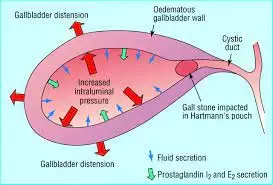- Home
- Medical news & Guidelines
- Anesthesiology
- Cardiology and CTVS
- Critical Care
- Dentistry
- Dermatology
- Diabetes and Endocrinology
- ENT
- Gastroenterology
- Medicine
- Nephrology
- Neurology
- Obstretics-Gynaecology
- Oncology
- Ophthalmology
- Orthopaedics
- Pediatrics-Neonatology
- Psychiatry
- Pulmonology
- Radiology
- Surgery
- Urology
- Laboratory Medicine
- Diet
- Nursing
- Paramedical
- Physiotherapy
- Health news
- Fact Check
- Bone Health Fact Check
- Brain Health Fact Check
- Cancer Related Fact Check
- Child Care Fact Check
- Dental and oral health fact check
- Diabetes and metabolic health fact check
- Diet and Nutrition Fact Check
- Eye and ENT Care Fact Check
- Fitness fact check
- Gut health fact check
- Heart health fact check
- Kidney health fact check
- Medical education fact check
- Men's health fact check
- Respiratory fact check
- Skin and hair care fact check
- Vaccine and Immunization fact check
- Women's health fact check
- AYUSH
- State News
- Andaman and Nicobar Islands
- Andhra Pradesh
- Arunachal Pradesh
- Assam
- Bihar
- Chandigarh
- Chattisgarh
- Dadra and Nagar Haveli
- Daman and Diu
- Delhi
- Goa
- Gujarat
- Haryana
- Himachal Pradesh
- Jammu & Kashmir
- Jharkhand
- Karnataka
- Kerala
- Ladakh
- Lakshadweep
- Madhya Pradesh
- Maharashtra
- Manipur
- Meghalaya
- Mizoram
- Nagaland
- Odisha
- Puducherry
- Punjab
- Rajasthan
- Sikkim
- Tamil Nadu
- Telangana
- Tripura
- Uttar Pradesh
- Uttrakhand
- West Bengal
- Medical Education
- Industry
Continuing Antithrombic therapy safe during emergency lap chole for acute cholecystitis: Study

Continuing Antithrombic therapy (ATT) is safe during emergency laparoscopic cholecystectomy (LC) for acute cholecystitis (AC), according to a recent study published in the BMC surgery.
Acute cholecystitis is inflammation of the gallbladder. It usually happens when a gallstone blocks the cystic duct. Gallstones are small stones, usually made of cholesterol, that form in the gallbladder. Antithrombotic drugs in routine use include antiplatelet drugs (aspirin, clopidogrel, and glycoprotein IIb/IIIa receptor antagonists) and anticoagulants (unfractionated and low molecular weight heparin, warfarin, and direct thrombin inhibitors).
Continuing antithrombic therapy (ATT) during surgery increases the risk of bleeding. However, it is difficult to discontinue antithrombic therapy (ATT) in emergency surgery. Therefore, the safety of emergency laparoscopic cholecystectomy (LC) for acute cholecystitis (AC) is still unclear. We aimed to clarify the effect of antithrombic therapy (ATT) during emergency LC for AC.
Patients with AC were classified into antithrombic therapy (ATT) group (n = 30) and non- antithrombic therapy (ATT) group (n = 120). Postoperative outcomes were compared after propensity score matching (n = 22).
The Results of the study are:
A higher level of c-reactive protein level and shorter activated partial thromboplastin time (APTT) was observed in the antithrombic therapy (ATT) group than in the non- antithrombic therapy (ATT) group after matching. No significant difference was found between other patient characteristics and perioperative results. Blood loss over 100 mL was observed in 8 patients. Multivariate analysis showed that APTT was an independent risk factor for bleeding over 100 mL (P = 0.039), while ACT and APT were not.
Thus, the researchers concluded that taking antithrombic therapy (ATT) does not affect the blood loss or complications during emergency laparoscopic cholecystectomy (LC) for AC. Controlling intraoperative bleeding is essential for a safe postoperative outcome.
Reference:
Taking antithrombic therapy during emergency laparoscopic cholecystectomy for acute cholecystitis does not affect the postoperative outcomes: a propensity score-matched study by Kentaro Oji, et al. published in the BMC Surgery.
https://bmcsurg.biomedcentral.com/articles/10.1186/s12893-022-01501-6
Dr. Shravani Dali has completed her BDS from Pravara institute of medical sciences, loni. Following which she extensively worked in the healthcare sector for 2+ years. She has been actively involved in writing blogs in field of health and wellness. Currently she is pursuing her Masters of public health-health administration from Tata institute of social sciences. She can be contacted at editorial@medicaldialogues.in.
Dr Kamal Kant Kohli-MBBS, DTCD- a chest specialist with more than 30 years of practice and a flair for writing clinical articles, Dr Kamal Kant Kohli joined Medical Dialogues as a Chief Editor of Medical News. Besides writing articles, as an editor, he proofreads and verifies all the medical content published on Medical Dialogues including those coming from journals, studies,medical conferences,guidelines etc. Email: drkohli@medicaldialogues.in. Contact no. 011-43720751


